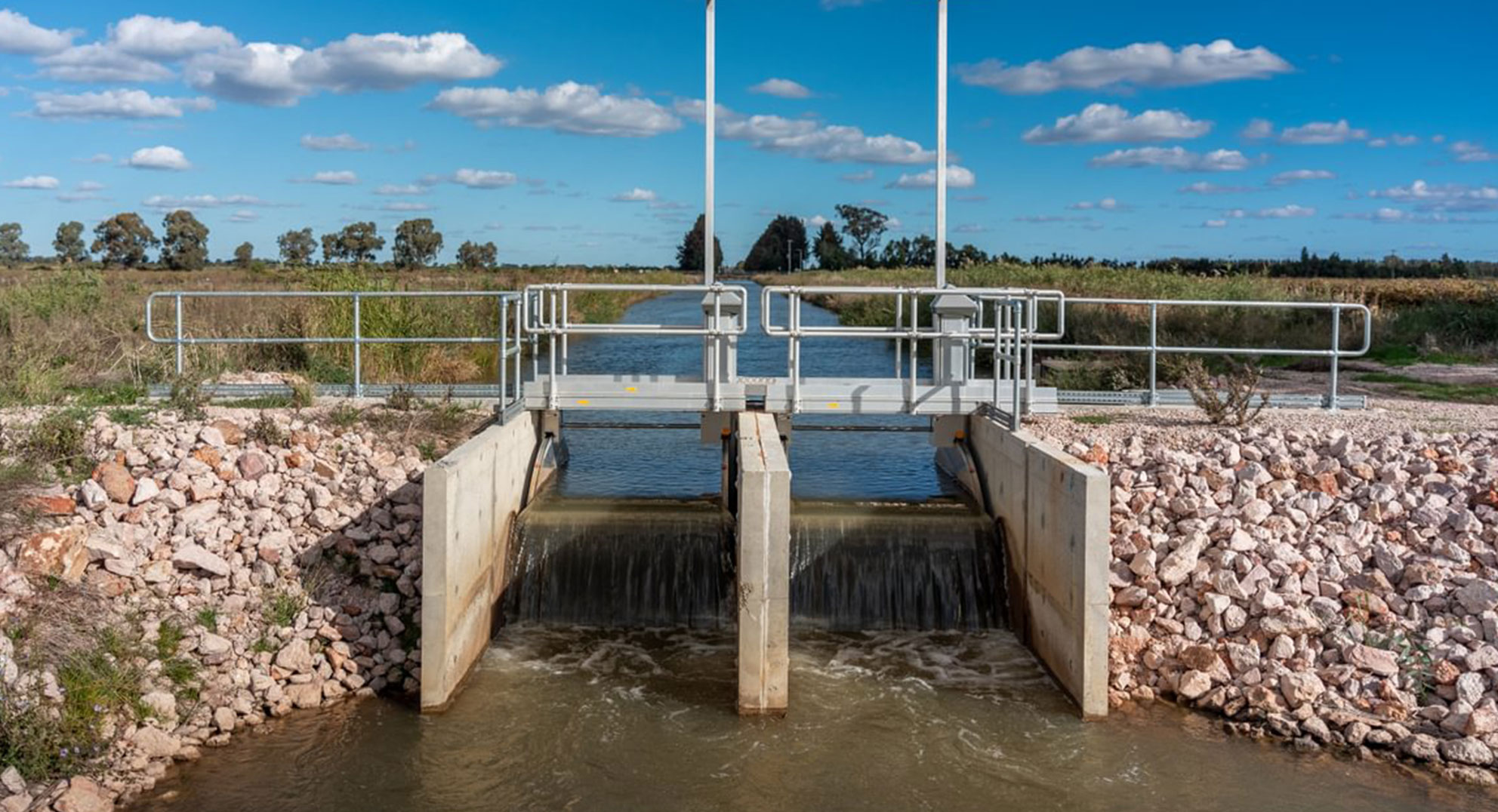Irrigation demand forecasting for multi-scale multi-objective system storage control optimisation

Status
Complete
Project Type
Quickstart
Timeframe
2023-2024
Core Partners
Australian National University, University of Melbourne, Murrumbidgee Irrigation, Colleambally Irrigation
This project focuses on evaluating and developing demand forecasting algorithms to enhance water ordering operations in irrigation districts, using the Murrumbidgee as a case study.
About the project
Efficient water management is crucial in the Murrumbidgee River region, where multiple actors, including farmers, irrigation districts, and government agencies rely on accurate water forecasts to plan their activities.
Demand forecasting can help optimise water usage, reduce wastage, and ensure that water resources are available when and where they are needed most.
One key aspect of this project involves creating operational demand forecasting algorithms. These algorithms will predict future water needs, helping irrigation districts plan and manage their water orders more effectively.
Additionally, the project is exploring broader applications of these forecasting models to support water management across different scales and sectors. This includes investigating how these approaches could be integrated into overall water management strategies, potentially through other projects or tech accelerators.
The project employs a design science research (DSR) methodology to identify problems and develop solutions. Initially, a literature review and analysis was conducted to understand current water management practices and challenges. Five key themes were identified for developing use cases: river operations, conjunctive use of surface and groundwater, coordination between river and irrigation districts, water markets, and supplementary water announcements.
In the solution design phase, use cases are iteratively developed and refined, considering the roles and interactions of different actors, key constraints, and potential benefits of demand forecasting.
This iterative process includes internal testing and stakeholder engagement through meetings and workshops, aiming to ensure that demand forecasting approaches are practical and beneficial.
Outcomes
The project seeks to inform integrated water storage planning and operations and address the challenges of water management in the Murrumbidgee River region. It seeks to optimise water usage, reduce wastage, and ensure that water resources are available when and where they are needed most, ultimately benefiting farmers, irrigation districts, and the environment.